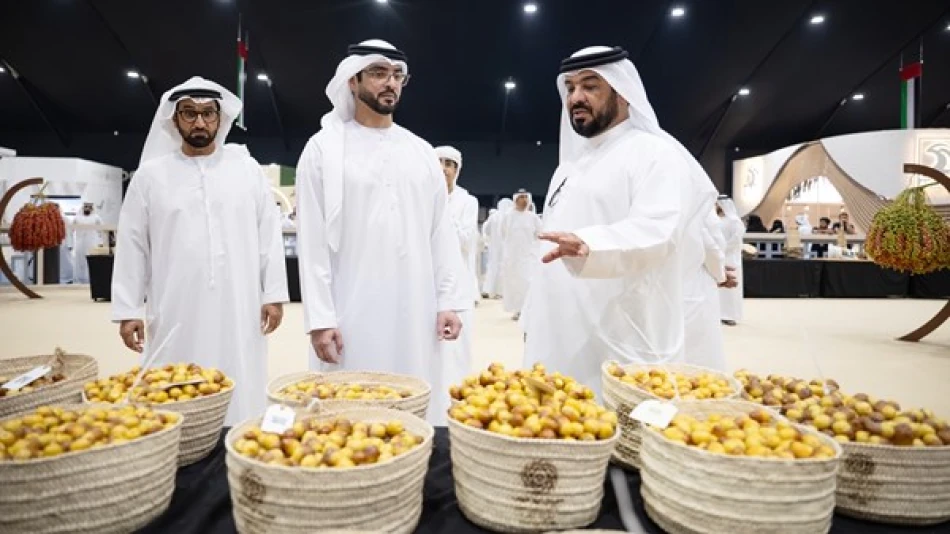
Emirati Royal Visits Liwa Date Festival, Showcasing UAE's Rich Agri-Cultural Heritage
UAE's Liwa Date Festival Showcases Cultural Heritage Strategy in Economic Diversification Push
The UAE's commitment to preserving its cultural identity while building a modern economy took center stage as Sheikh Sultan bin Hamdan bin Zayed Al Nahyan visited the 21st Liwa Date Festival in Abu Dhabi's Al Dhafra region. The two-week celebration, running until July 27, represents more than agricultural tradition—it's a strategic component of the Emirates' broader economic diversification away from oil dependency.
Royal Patronage Signals Strategic Importance
The festival operates under the patronage of Sheikh Mansour bin Zayed Al Nahyan, UAE Vice President and Deputy Prime Minister, indicating the government's recognition of cultural tourism as an economic pillar. Sheikh Sultan's Monday evening visit included tours of participating pavilions, date markets, palm sapling vendors, and traditional craft exhibitions—all elements that contribute to the UAE's growing heritage tourism sector.
Beyond Tradition: Economic Impact
The festival's 14-day program combines competitions, lectures, seminars, and farmer-focused events that serve dual purposes. While celebrating Emirati agricultural heritage, these activities also support the country's food security initiatives and rural economic development. The date industry alone contributes significantly to the UAE's non-oil GDP, with the country producing over 540,000 tons annually.
Cultural Tourism as Economic Strategy
The Liwa Date Festival exemplifies how Gulf states are leveraging cultural assets for economic gain. Similar to Saudi Arabia's NEOM project or Qatar's cultural district development, the UAE is positioning heritage tourism as a sustainable revenue stream. The festival attracts both domestic and international visitors, contributing to the broader Vision 2071 goal of making the UAE the world's best country by its centennial.
Regional Competition and Differentiation
While neighboring countries focus heavily on futuristic mega-projects, the UAE's emphasis on agricultural heritage creates unique positioning in the regional tourism market. The festival's longevity—now in its 21st year—demonstrates sustained commitment to this cultural-economic strategy, contrasting with more recent initiatives elsewhere in the Gulf.
Investment Implications
For investors and businesses, the festival represents opportunities in agritourism, cultural preservation technology, and sustainable agriculture. The UAE's systematic approach to heritage tourism suggests long-term growth potential in sectors supporting cultural events, from hospitality to agricultural innovation. The government's consistent high-level support indicates policy stability that international partners can rely upon for long-term investments in the cultural economy sector.
Most Viewed News

 Layla Al Mansoori
Layla Al Mansoori






